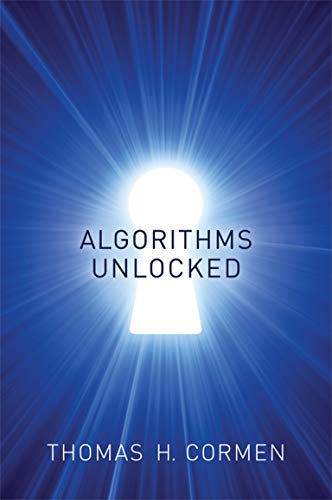General Information
Instructor:
Geoffrey Towell259 Park Science Building
526-5064
gtowell at brynmawr dot edu
http://cs.brynmawr.edu/~gtowell
Class:
| Lecture | 9:55 -- 11:15 T, Th | Park 336 |
|---|---|---|
| Lab | 11:25 -- 12:45Th | Park 230 |
| Office Hours | M 10-11, T, 11-12, F 10-12. Also by appointment No office hours on 2/3 |
Park 259 |
| Zoom | Meeting code: 232 840 6920. |
Password: given in class |
| Course Description | This course examines the applications of algorithms to the accomplishments of various programming tasks. The focus will be on understanding of problem-solving methods, along with the construction of algorithms, rather than emphasizing formal proving methodologies. Some of the algorithms we will study/implement include: searching, sorting, search engine indexing, Page Rank, pattern recognition: nearest neighbor, decision trees, neural nets, graph algorithms, error correcting codes, data compression, digital signatures, database algorithms, cryptographic hash functions, etc. Additionally, we will learn how to measure program performance, programming pitfalls, code optimization, advanced programming structures, etc. Prerequisites: CS151 and CS231 (Junior/Senior standing in the major preferred). This is a Writing Intensive (WI) course. | |
| Computer Lab | Park 230 & 231 | Instructions for using the lab
computers
Remote accessible lab computer status |
Text
Important Dates
- Jan 17, First class
- Schedule This is a key document. It show all of the readings; has links to all of the labs, and shows who is presenting on which days -- about what.
Assignments
There will be assignments every week. Assignments will be due at the beginning of class -- typically on Tuesday.Assignments will be late and not accepted 5 minutes after the beginning of class
Labs
Labs will be the basis of assignments. I do not require attendance in lab. However, it will certainly be easier to do the assignments if you get a good start in lab.- Jan 19: Language standards and odd numbers Writeup due Jan 24, before the start of class.
Sample essay for lab 1 - Jan 26: Lab 2 -- Search Writeup due Jan 31, before the start of class.
- Feb 2: Lab 3 -- Sorting Writeup due Feb 7, before the start of class.
- Feb 9: Lab 4 -- Indexing Writeup due Feb 21, at the start of class.
- Feb 23: Lab 6 -- Hashing Writeup due Feb 28, at the start of class.
- March 2: Lab 7 -- Graphing Writeup due March 14, at the start of class. Approximate point allocation Make you secret identity two — non-fictional, non-extinct — animals
- March 16: Lab 8 -- Graphing3 Writeup due March 28, at the start of class.
- March 23: Lab 9 -- KMeans clustering Writeup due April 4, at the start of class.
- March 30: No lab, instead attend talk by visitor from RIT
- April 6: Crypto Hashing Writeup due April 11, at the start of class.
- April 13: Compression Writeup due April 18, at the start of class.
- April 20: Bin packing Writeup due April 25, at the start of class.
Classes
Much of this course will be student led discussion. So a schedule with lecture notes is not terribly relevant.
Schedule This is a key document. It shows all of the readings; has links to all of the labs, and shows who is presenting on which days -- about what. Below are powerpoint slides, if/when appropriate.- Jan 17 -- Introduction
Lecture notes - Jan 19 -- More algorithmic thoughts -- graphs
Lecture notes - Jan 24 -- Lab 1 recap, Presentations
Lecture notes - Jan 26 -- HW 1, Presentations, algorithms
Lecture notes
A sample document from latex for font and page size reference - Jan 31 -- Student presentation on Lab 2
- Feb 2 -- Student presentation on Sorting
Common issues in Lab 2 reports - Feb 7 -- Student presentation on Lab 3
Optimizing mergesort ... with code! - Feb 28: Hashing
My slides - March 2: Graph basics
My slidesHandout - March 21: Clustering basics
My slides
From the distance data in the slides:Single Link dendrogram Complete Link dendrogram These are plausibly correct. If you believe I have made a mistake, you might be right. - April 4: Crypto Hash
My slides - April 13: Compression and Huffman Compression
My slides - April 18: LZW Compression lab
My slides - April 20: Huffman Compression and greedy algorithms
My slides
Course Policies
Communication
Attendance and active participation are
expected in every class. Participation includes asking questions,
contributing answers, proposing ideas, and providing constructive
comments.
Please
stay in touch with me, particularly if you feel stuck on a topic
or assignment and can't figure out how to proceed. Often a quick
e-mail, or face-to-face conference can reveal solutions
to problems and generate renewed creative and scholarly energy. It
is essential that you begin assignments early.
Grading
Grades will be awarded based on the number of points earned and according to the percentage breakdowns shown.| Labs & written work | 35% |
| Presentations | 35% |
| Class Participation | 20% |
| Attendance | 10% |
Incomplete grades will be given only for verifiable medical
illness or other such dire circumstances. Incomplete grades must be approved through the Dean's
office.
ALL work submitted for grading should be entirely YOUR OWN. Sharing of programs, code snippets, etc. is not permitted under ANY circumstances. That said, I encourage you to discuss assignments at an algorithmic level with other students. That is, talk about the problem, and general approaches to problems. Do not share or discuss actual code.
Links
- APA Citation guide, Seventh Edition This page shows how to cite un-authored web pages and the like
- Citing web pages with no authors
- making good chartsRather long -- actually quite long -- but slices 10-29 that enumerate and give example for 5 "principles" is well worth reading.
- A very brief document showing charts and figures
Learning Accommodations
Students requesting accommodations in this course because of the impact of disability are encouraged to meet with me privately early in the semester with a verification letter. Students not yet approved to receive accommodations should also contact Deb Alder, Coordinator of Accessibility Services, at 610-526-7351 in Guild Hall, as soon as possible, to verify their eligibility for reasonable accommodations. Early contact will help avoid unnecessary inconvenience and delays.This class may be recorded.
Creating a Welcoming Environment
All members of the Instruction Staff are dedicated to the cause of improving diversity, equity, and inclusion in the field of computing, and to supporting the wellness and mental health of our students.Diversity and Inclusion
It is essential that all members of the course community – the instructor, TAs, and students – work together to create a supportive, inclusive environment that welcomes all students, regardless of their race, ethnicity, gender identity, sexuality, or socioeconomic status. All participants in this course deserve to and should expect to be treated with respect by other members of the community. Class meetings, lab sessions, office hours, and group working time should be spaces where everyone feels welcome and included. In order to foster a welcoming environment, students of this course are expected to: exercise consideration and respect in their speech and actions; attempt collaboration and consideration, including listening to opposing perspectives and authentically and respectfully raising concerns, before conflict; refrain from demeaning, discriminatory, or harassing behavior and speech.Wellness
Additionally, your mental health and wellness are of utmost importance to the course Instruction Staff, if not the College as a whole. All members of the instruction staff will be happy to chat or just to listen if you need someone to talk to, even if it’s not specifically about this course. If you or someone you know is in distress and urgently needs to speak with someone, please do not hesitate to contact BMC Counseling Services: 610-526-7360 (610-526-7778 nights and weekends). If you are uncomfortable reaching out to Counseling Services, any member of the Instruction Staff will be happy to contact them on your behalf. We understand that student life can be extremely difficult, both mentally and emotionally. If you are living with mental health issues such as anxiety, depression, ADHD, or other conditions that may affect you this semester, you are encouraged to discuss these with the Instructor. Although the details are up to you to disclose, the Instruction Staff will do their best to support and accommodate you in order to ensure that you can succeed this course while staying healthy.Created on January 2023. Subject to constant revision.


